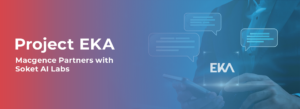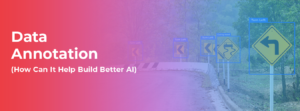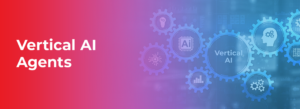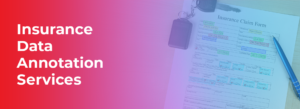Skills and Requirements to Become a Medical Annotator
A total of 629.5 million dollars was spent on data annotation in 2021, according to market research and the healthcare industry is a major contributor to these numbers. With the increasing demand for healthcare AI tools, the requirement for medical annotators is also increasing. The primary work of a medical annotator involves adding metadata to the medical images so that they can be read and understood by the machines. They make sure that the data provided to the AI and ML models is of top-notch quality so that accurate and optimized results can be generated. If you are looking for quality training data for your healthcare-AI models then do check out Macgence. We have a team of competent medical annotators who work jointly with automated systems. So that the best quality datasets can be crafted for training your models effectively. Get in touch with us today at www.macgence.com.
Emerging technologies like AI, ML, IoT, and more rely on huge amounts of data sets. Hence, the healthcare industry is aiming to partner with more and more medical annotator experts so that their capabilities can be enhanced.
In this blog, we’ll discuss the general idea of data annotation along with the soft and hard skills required to become a successful medical annotator. Keep reading, and keep learning!
What is Medical Data Annotation?
Medical data annotation is the process of adding additional information to an image. This information may include labels, segmentation masks, bounding boxes, and more. With medical data annotation, AI and ML models can be trained to analyze medical conditions. Apart from its clinical applications, medical annotator services are also primarily used for research purposes. Specifically, AI and ML models assist medical researchers in diagnosing diseases by analyzing medical images. Consequently, data sets form the foundation of the medical data annotation process. Therefore, you must ensure that the datasets you source for training your healthcare AI model not only have variety but also are of high quality.
Who is a Medical Annotator
A person responsible for adding labels to medical images (like X-rays, MRI scans, CT scans, and other types of clinical findings) is known as a medical annotator. Additionally, they verify these annotations to ensure that all the quality standards are being met. Moreover, medical annotators have a good command over annotation tools and software. This expertise helps them to maintain the quality of the annotation and also ensures that minimum time is consumed in this process.
Medical annotators are given a certain set of protocols by their healthcare organizations so that there is consistency in their results. They even collaborate with healthcare professionals like radiologists, clinicians, and more to get a brief about the annotation requirements. Quality medical annotators experts keep themselves up to date with the latest trends and developments in the field of medical imaging.
Skills that a Medical Annotator Must Have
The following skillsets are a must for a quality medical annotator:
- General knowledge of common terms, conditions, and procedures used by the medical profession.
- Proficiency in using annotation tools and software specific to medical data.
- Ability to interpret and annotate medical images (e.g., X-rays, MRIs, CT scans) and signals (e.g., ECG, EEG).
- Achieving precision and accuracy in identifying data (object detection) and labeling, which ensures quality.
- The ability to analyze complex medical data and make appropriate annotations.
Developing these hard skills can help data annotators become more proficient and effective.
How Can Macgence Help?
So, that was all about medical annotators. From the basics of data annotation to the skills required to become a medical annotator, we have covered it all. Medical annotator is a great career option whose demand will definitely increase with time. A medical annotator is responsible for labeling and tagging medical images by using specialized tools and techniques.
Are you struggling to source the right data to train your healthcare AI model? Look no further than Macgence. We provide outstanding quality, scalability, expertise, and support. Macgence is even conformed to ISO-27001, SOC II, GDPR, and HIPAA. Reach out to us today at www.macgence.com!
FAQs
Ans: – A process in which labels, bounding boxes, or segmentation masks are added to medical images to label the elements present in them is known as medical data annotation. This information helps train AI and ML models to analyze medical conditions.
Ans: – A person responsible for adding labels to medical images (like X-rays, MRI scans, CT scans, and other types of clinical findings) is known as a medical annotator.
Ans: – Medical data annotation is crucial for training AI and ML models to analyze medical conditions, aiding in diagnostics and research.
Ans: – Major hard skills to become a medical annotator include SQL, typing speed and accuracy, and having a good hold of programming languages (e.g., Python, Java).
Ans: – If you are looking to source high-quality medical annotator training datasets then look no further than Macgence. They provide high-quality data sets for training AI models in healthcare.
You Might Like
February 28, 2025
Project EKA – Driving the Future of AI in India
Spread the loveArtificial Intelligence (AI) has long been heralded as the driving force behind global technological revolutions. But what happens when AI isn’t tailored to the needs of its diverse users? Project EKA is answering that question in India. This groundbreaking initiative aims to redefine the AI landscape, bridging the gap between India’s cultural, linguistic, […]
March 7, 2025
What is Data Annotation? And How Can It Help Build Better AI?
Spread the loveIntroduction In the world of digitalised artificial intelligence (AI) and machine learning (ML), data is the core base of innovation. However, raw data alone is not sufficient to train accurate AI models. That’s why data annotation comes forward to resolve this. It is a fundamental process that helps machines to understand and interpret […]
March 6, 2025
Vertical AI Agents: Redefining Business Efficiency and Innovation
Spread the loveThe pace of industry activity is being altered by the evolution of AI technology. Its most recent advancement represents yet another level in Vertical AI systems. This is a cross discipline form of AI strategy that aims to improve automation in decision making and task optimization by heuristically solving all encompassing problems within […]
March 5, 2025
Use of Insurance Data Annotation Services for AI/ML Models
Spread the loveThe integration of artificial intelligence (AI) and machine learning (ML) is rapidly transforming the insurance industry. In order to build reliable AI/ML models, however, thorough data annotation is necessary. Insurance data annotation is a key step in enabling automated systems to read complex insurance documents, identify fraud, and optimize claim processing. If you […]


 Previous Blog
Previous Blog







